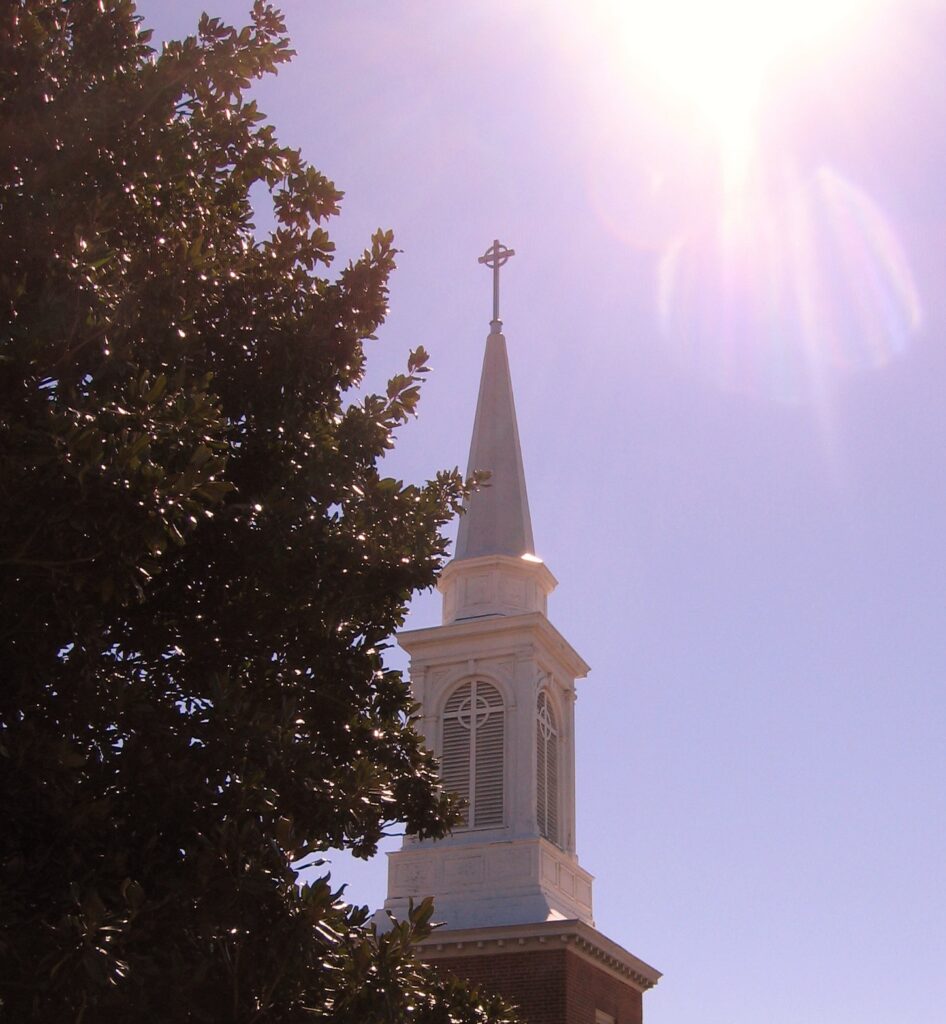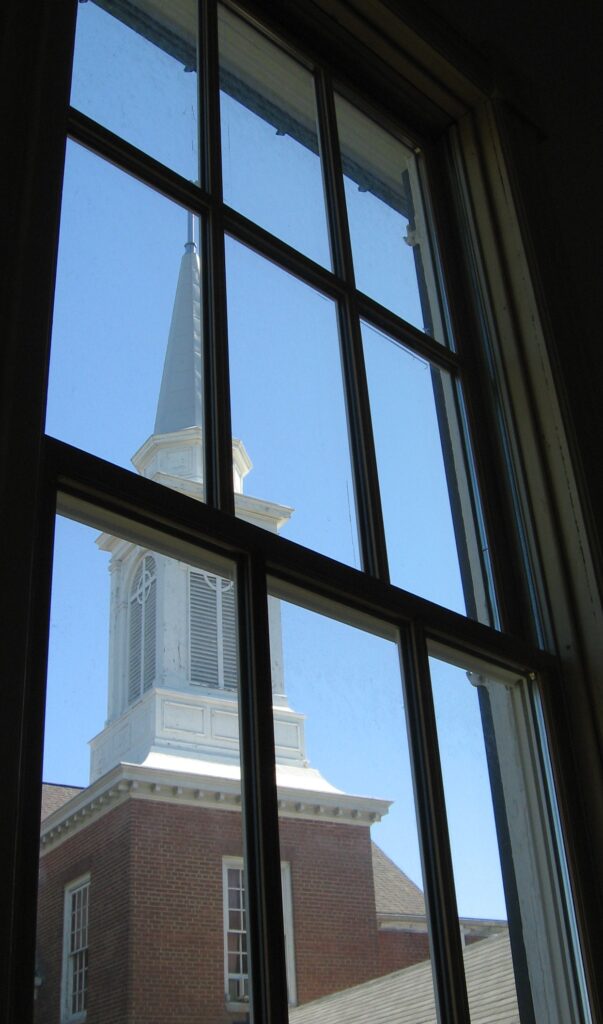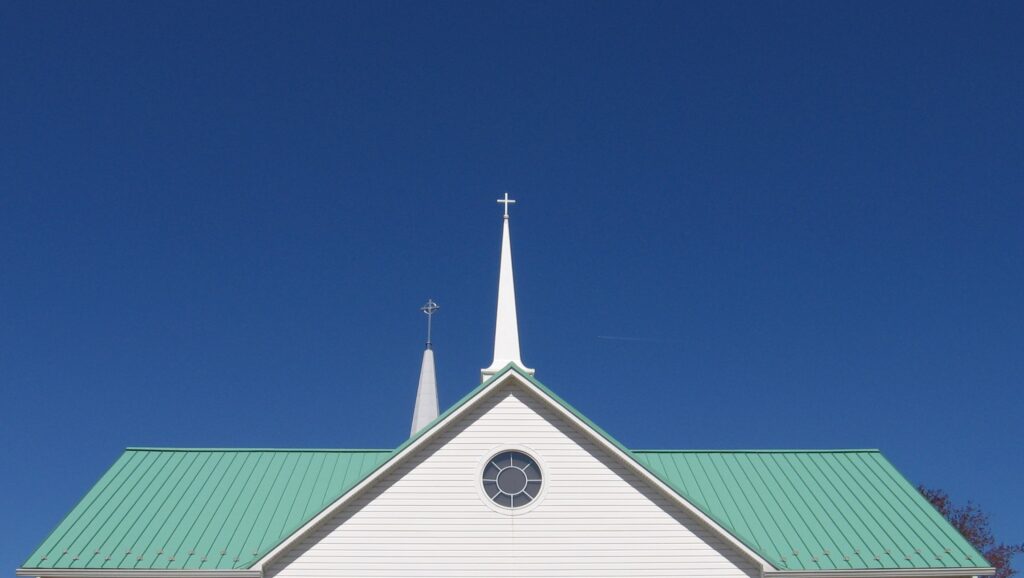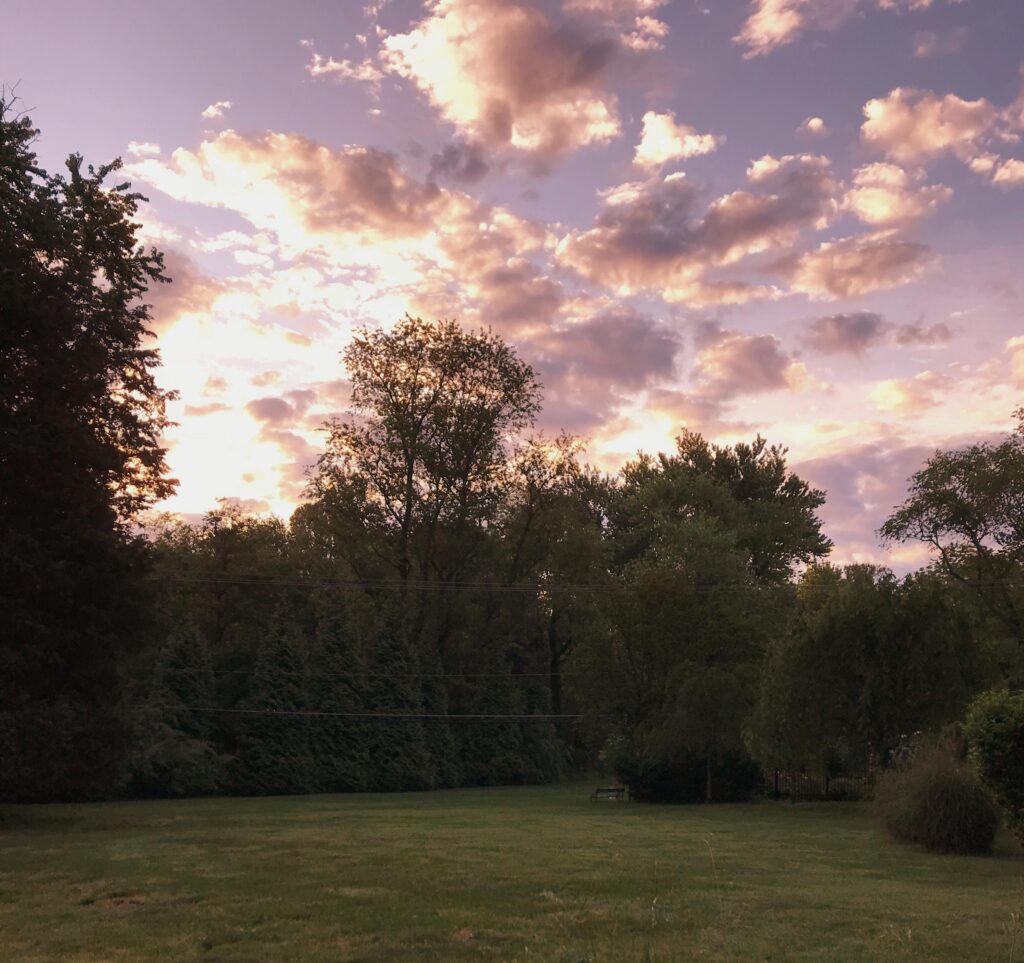
Debate, often heated, continues on the subject of if, when and how churches should open during the Coronavirus pandemic.
Such talk is misleading.
If you typically attend a church that now refers to itself as “closed,” you may not really have been attending church at all.
Because churches, the real ones, have never “closed.” While congregations have not been gathering in their accustomed sanctuaries, the true and vital work of the church continues.
Let me speak for my own United Methodist church.
Communal worship has moved online. On the first Sunday of the lockdown, our minister simply delivered her sermon live on Facebook. Thanks to teamwork and tech-savvy volunteers, the quality and richness of our services, now accessible on YouTube from our website, improve week by week. Those lacking computer access may call the church office and listen to a recording of the sermon. Small group studies and fellowship for adults, youth and children continue on Zoom and by phone. Attendance at Church Council, Staff-Parish and other committee meetings has never been higher, thanks to Zoom and the lack of any other place to go. We can’t get together physically with our church family, but we’re looking out for one another. Volunteers quickly mobilized to run essential errands for the elderly and the sick. We exchange emails, texts, phone calls and handwritten notes. We certainly miss welcoming any newcomers who might drop by. It’s therefore crucial that we use our online resources to share the hope and joy that comes with knowing Christ.

Perhaps most importantly, our missions continue. Throughout his ministry, Jesus emphasized the sacred importance of feeding the poor and sharing our material wealth. Before his betrayal and arrest, Jesus told his disciple Simon Peter three times: If you love me, take care of my sheep (John 21:15-17). We’re trying. Our Administrator and Director of Christian Education is at the church every weekday morning, just as she was before the pandemic. Among her duties, she deals with a wide variety of requests for financial assistance. The Covid-19 crisis has made such needs more desperate. Our funds are limited, but we do what we can. We no longer meet in person with the elementary school children we mentored in our Homework Club. But through an ongoing collection, we’re providing some support to their families, many of whom have been adversely affected by the pandemic. And as always, of the money we pledge to the church, a substantial portion goes to both local and global needs.
Following the guidelines established by our bishop, we’re beginning to consider the process, not of “opening,” but of moving toward in-person worship. For the well-being of our congregation and those with whom they interact, we will take things slowly. We will not return to our sanctuary with boasts that God will protect us, or bold declarations of “If God says it’s my time, it’s my time.” When I hear such claims, I think, It’s not only about you. ‘Your time’ may not be your mother’s, or your father’s, or your friend’s time. Our church members do not speak of feeling victimized by our county and state government’s banning of in-person worship during the pandemic. I’ve heard no one in our congregation wondering why churches have been “closed” but grocery and liquor stores remain open. I cannot remember a time when I sat shoulder to shoulder with other patrons for an hour or more, singing and being sung to, while doing my grocery or liquor shopping. A friendly, crowded sanctuary is simply an ideal environment for the exchange of germs.

Later this month, our congregation will bid goodbye to our dear friend and current pastor of eight years without being able to meet together. We will welcome a new minister in the same way. For the next couple of months, at the very least, there will be no after-church receptions, no pot lucks, no hugs or shaking of hands. But we will continue to care for one another. We will continue to feed the sheep. And we will persist in reaching out to those seeking answers to life’s difficult questions during these especially difficult days.
As if the Covid-19 pandemic were not sufficient trial by fire for our nation, the situation has become considerably more painful in the last week. The Memorial Day murder of George Floyd, the most recent in a series of deaths of black Americans at the hands of police or self-deputized white citizens, has served as a tipping point. The brutal death of this unarmed, handcuffed man took place in public view, in daylight, on a Minneapolis street. While one police officer slowly asphyxiated Mr. Floyd, his knee pressing into his neck, three others watched and did nothing, despite pleas from bystanders. And despite the repeated words of Mr. Floyd: I can’t breathe. I can’t breathe. What atrocities might such police commit in the shadows, when no one is looking, one shudders to imagine. Spurred on by righteous and justifiable anger, protests are occurring from coast to coast. Most are intended as peaceful, yet a large crowd is a volatile, fragile corporate entity, easily hijacked by those of malicious intent. And there are always some small-minded people who seize on a crisis for their own personal gain. Our nation may be more angst-ridden, enraged and polarized than in any period in recent memory.
For nearly twenty years, the United Methodist Church has used this phrase in our outreach material: Open hearts. Open minds. Open doors. Precisely because we love one another, our doors must be temporarily closed, yet our hearts and minds are open, as always. We will not allow the message of God’s grace to shelter quietly, hidden away and gathering dust. Neither will we brandish a Bible, unopened and unread, at best like a symbol, at worst like a weapon, while speaking and acting in an absolutely unchristlike manner. Instead, we will double down on our efforts to extend an invitation to all to open the holy text and learn about the teachings of Jesus, who came to be Immanuel, which means God with us.
And God is with us and among us, even though some say he is absent. Isn’t it up to churches, in these days of closed doors, to open our hearts and minds even more generously to our hurting world? To show what it means to walk humbly with our God and to live in love? To lead the way towards healing and unity?

If you’re looking for a trusted and efficient organization that helps the most vulnerable in this and any crisis, consider donating to the United Methodist Committee on Relief (UMCOR). 100% of your donation will go to your intended mission project. See https://advance.umcor.org/.
